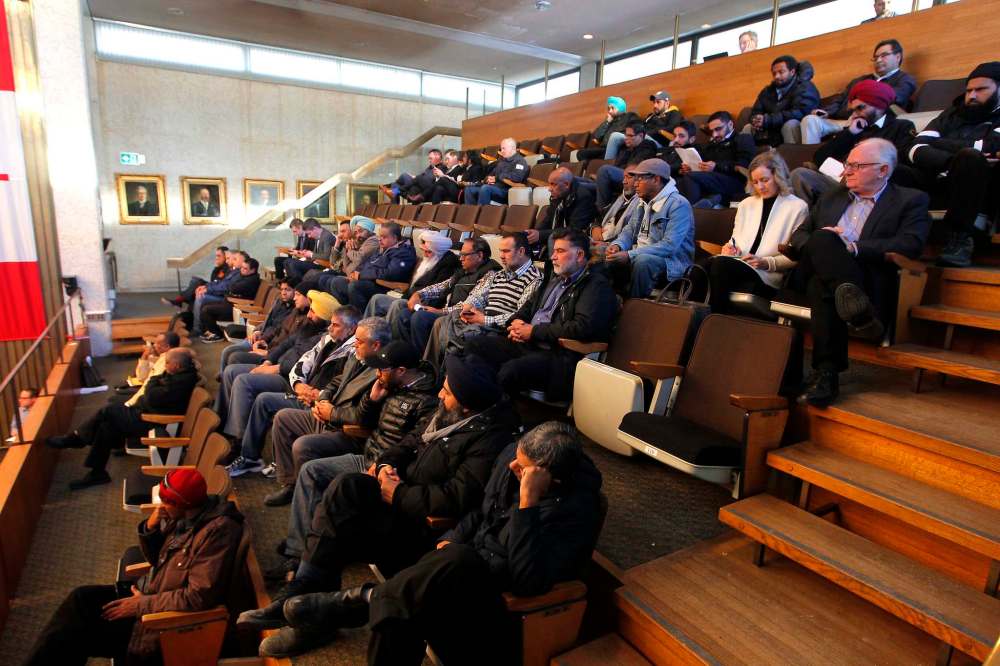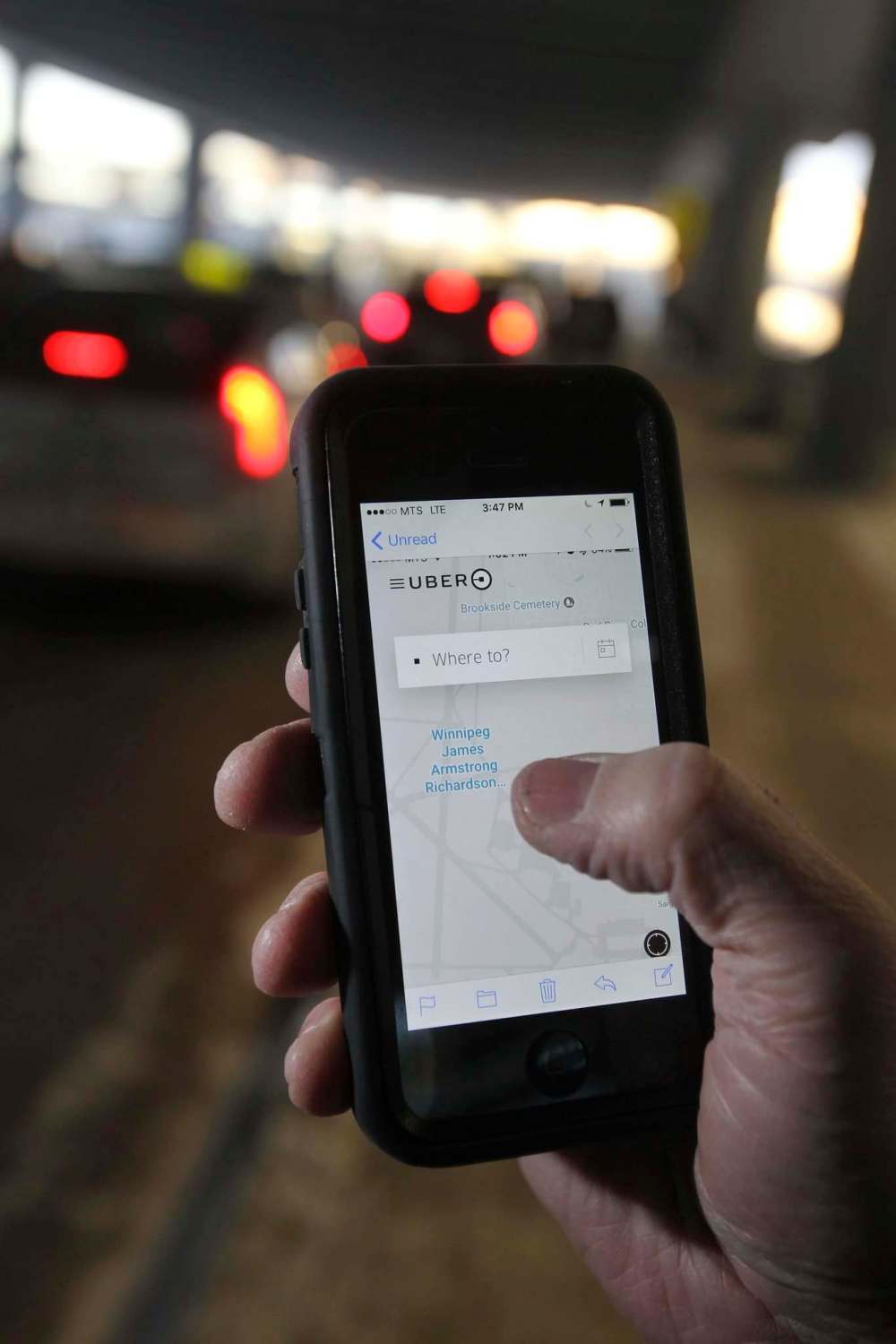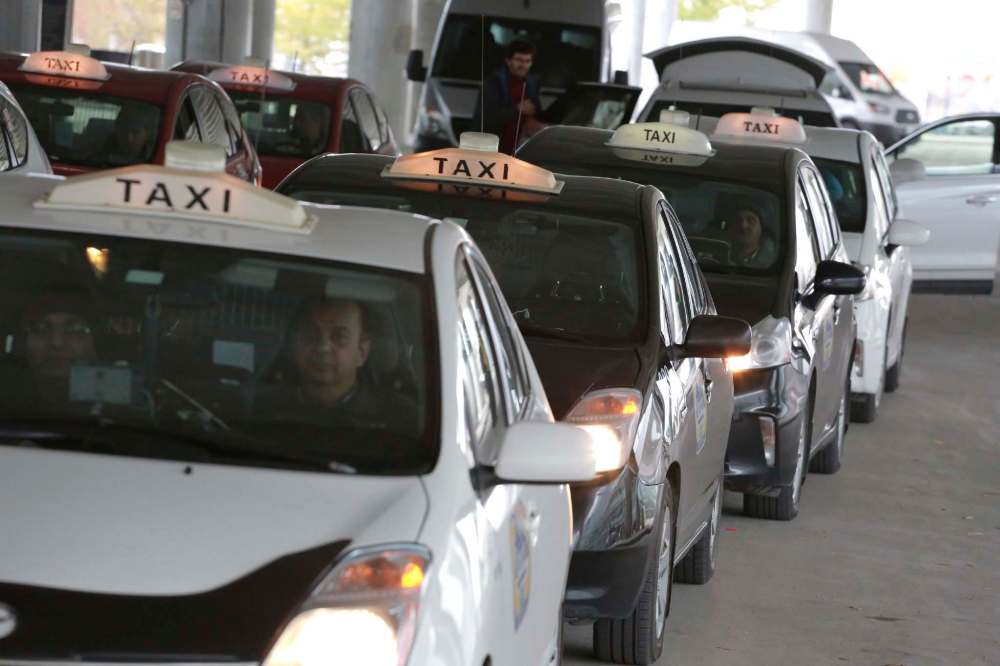Taxi industry mad as hail over city’s fast-lane welcome for Uber, Lyft
Advertisement
Read this article for free:
or
Already have an account? Log in here »
To continue reading, please subscribe:
Monthly Digital Subscription
$19 $0 for the first 4 weeks*
- Enjoy unlimited reading on winnipegfreepress.com
- Read the E-Edition, our digital replica newspaper
- Access News Break, our award-winning app
- Play interactive puzzles
*No charge for four weeks then billed as $19 plus GST every four weeks. Offer only available to new and qualified returning subscribers. Cancel any time.
Read unlimited articles for free today:
or
Already have an account? Log in here »
Hey there, time traveller!
This article was published 05/12/2017 (2576 days ago), so information in it may no longer be current.
A day-long effort by taxi owners and drivers pleading with senior councillors to reconsider a controversial bylaw ultimately fell on deaf ears when Mayor Brian Bowman and his executive policy committee Wednesday unanimously endorsed new regulations to overhaul the taxi industry and allow ride-hailing services like Uber and Lyft.
The Vehicles For Hire Bylaw now goes to council next week for a vote but several EPC members said they are considering proposing amendments or voting against it outright at that time.
“I will support the motion today going forward with the understanding that I still have a fair bit of research,” Coun. John Orlikow said. “My vote is not cast for next week. I do believe we’re going to have some more amendments coming forward.”

The vote followed almost 8 hours of speeches from two dozen members of the local taxi industry and their supporters demanding changes to the bylaw and criticizing Bowman and his administration for what they said was a lack of consultations on a set of regulations which threatens their livelihood.
“The process has been really, really, really ugly,” said Scott McFadyen, spokesman for Winnipeg’s two dominant taxi firms, Unicity and Duffy’s.
City hall unveiled new rules only Friday that will allow ride hailing services such as Uber and Lyft to operate beginning March 1 and loosen the rules on traditional taxi operators.
The bylaw was prompted by the Pallister government’s decision last March to bring more competition to the industry by disbanding the Manitoba Taxicab Board and turning over regulation, at least within Winnipeg, to city hall. Other municipalities already regulate the taxi industry in their own communities.
The legislature passed the enabling legislation Nov. 9 and set a deadline of March 1 for Winnipeg to take over regulation of the industry.
Edmonton was the first city in Canada to authorize ride hailing in March 2016 and that has been followed by Calgary, Ottawa, Toronto, London, Hamilton, Waterloo and dozens of other communities.
EPC made two amendments to the proposed bylaw: The requirement for a review in 24 months was deleted and replaced with annual reviews for the first five years. There was also a wording change that offended the city’s disabled community in how those individuals who use wheelchairs are described.
Included among the provisions of the new regulations:
• The Winnipeg Parking Authority will regulate the industry on an interim basis.

• The city plans to issue 120 new taxi licences.
• There will be no restrictions on the number of vehicles in ride hailing, or personal transportation provider (PTP), services.
• Ride-hailing services will pay an annual fee, ranging from $2,000 to $50,000, depending on the number of vehicles it operates.
• Traditional taxi firms will have to pay similar fees, also depending on the size of their fleet.
• City hall will increase fees for taxi drivers and owners.
Spokesmen for Uber and Lyft said they were pleased with the city’s proposed bylaw and said they expect to have drivers operating in Winnipeg by March 1.
“All in all this is a very good bylaw,” said Chris Schafer, Uber Canada’s public policy manager. “What they’re contemplating passing is in fact good public policy.”
Schafer said the bylaw is consistent with regulations adopted by other Canadian municipalities.
McFadyen said city hall acted hastily and unfairly by releasing its proposed bylaw on Dec. 1 and expecting council to approve it Dec. 13.

“There is no accountability and transparency here,” McFadyen said, adding city hall refused to provide the industry adequate time to respond to the new rules and failed to consider the impact it will have on drivers and owners.
The city’s new fee structure will impose a 300 per cent increase in driver licences, from the current $200 to $600, with no similar fee for ride-hailing drivers, he said, adding charges to the taxi industry will be subsidizing regulation of ride-hailing vehicles.
The industry wanted to see several changes to the proposed bylaw, including: eliminating the per trip fee city hall is charging to taxis; drop the plan to issue 120 new taxi licenses; require ride-hailing vehicles to comply with the same safety requirements applied to taxis, he added.
Coun. Brian Mayes said he will push for an amendment at council requiring ride-hailing vehicles to have safety shields
aldo.santin@freepress.mb.ca
History
Updated on Wednesday, December 6, 2017 7:33 PM CST: full write through



